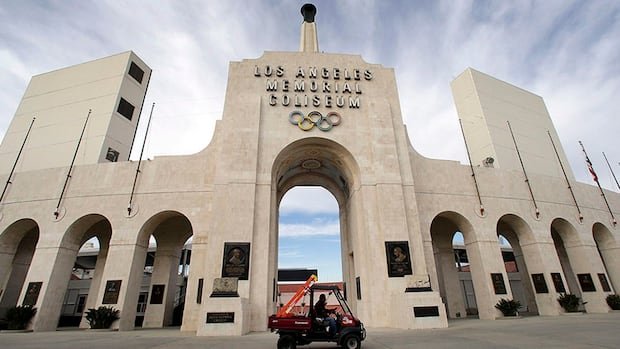The Los Angeles Olympics organizers have decided to capitalize on naming rights for several venues, anticipating multi-million-dollar deals that will inject additional funds into the 2028 Games. This move marks a departure from the traditional International Olympic Committee’s stance of avoiding brand names on its arenas and stadiums.
The organizing committee revealed the groundbreaking agreements on Thursday, confirming partnerships with two key sponsors – Honda, which already holds naming rights for the Anaheim arena hosting volleyball, and Comcast, set to brand the temporary squash venue. LA28 chair and CEO Casey Wasserman emphasized that the revenue generated surpasses the existing $6.9 billion budget allocated for the event in Los Angeles.
Wasserman positioned these deals as pivotal for Los Angeles, given the city’s reliance on private funding for the Olympics, unlike many other host cities that receive government support. He underscored the unique nature of this arrangement, stressing the committee’s responsibility to deliver the Games successfully.
Explaining the rationale behind the naming rights strategy, Wasserman highlighted the prevalence of branded venues in American sports culture, citing examples like Crypto.com Arena, home to the Lakers, which will host gymnastics and boxing in 2028. Up to 19 temporary venues could potentially feature sponsor names, with priority granted to the IOC’s top sponsors.
Crucially, iconic venues such as the LA Memorial Coliseum, Rose Bowl, and Dodger Stadium are excluded from this naming rights initiative due to IOC regulations prohibiting advertising on the field of play. Nonetheless, this development underscores Los Angeles’ ongoing efforts to innovate and reshape the Olympic landscape, reminiscent of its transformative impact during the 1984 Games.
The city’s role in securing the 2028 Olympics, following a unique bidding process that prioritized sustainability and cost-efficiency, has positioned Los Angeles as a trailblazer in Olympic hosting. Notable changes for the 2028 Games, including the reintroduction of softball and baseball, and the introduction of flag football with NFL collaboration, reflect the city’s ability to drive significant changes in the Olympic program.
Additionally, a scheduling shift for the 2028 Olympics will see track and field events in the opening week, with swimming events towards the end. Wasserman emphasized the importance of the organizing committee’s private entity status in negotiating with the IOC, underscoring their relentless pursuit of innovative solutions and unwavering commitment to delivering a successful event.

